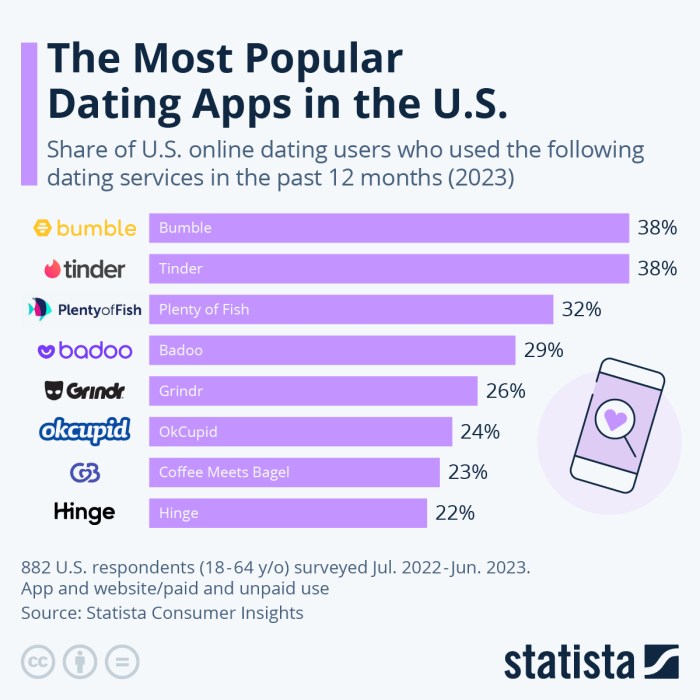Unlock the secrets of the American dating scene with our comprehensive US Dating Guide. From bustling cityscapes to charming small towns, the US offers a diverse tapestry of dating experiences. This guide delves into the nuances of online versus offline dating, exploring the role of social media, regional dating cultures, and the challenges faced by modern daters. We'll equip you with the knowledge and strategies to navigate the complexities of finding love in the United States, regardless of your location, background, or dating style.
Prepare to unravel the unique dynamics of dating in different US regions, understanding cultural variations and adapting your approach accordingly. We’ll compare popular dating apps, analyze effective communication techniques, and offer insights into navigating potential pitfalls, such as ghosting or rejection. This guide is your roadmap to a successful and fulfilling dating journey across the country.
Navigating the Dating Process in the US

Source: expertcog.com
Creating a Compelling Online Dating Profile
A strong online dating profile is crucial for attracting potential matches. It should accurately reflect your personality, interests, and relationship goals while showcasing your best self. Avoid generic statements and instead focus on specific details that highlight your unique qualities. High-quality photos are essential; choose images that show you in various settings, showcasing your personality and interests. Your profile description should be concise, engaging, and honest. It should clearly communicate what you're looking for in a partner and what you can offer in a relationship. Consider using humor and self-deprecation appropriately to make your profile more relatable and memorable.Effective Communication Strategies for Online and Offline Dating
Effective communication is the cornerstone of successful dating. Online, initiate conversations with thoughtful messages that go beyond simple greetings. Show genuine interest in the other person's profile and ask open-ended questions to encourage meaningful dialogue. Respond promptly to messages and maintain a consistent communication style. Offline, active listening and clear, respectful communication are paramount. Be mindful of your body language and engage in thoughtful conversations that demonstrate genuine interest in getting to know your date. Remember that effective communication is a two-way street; be prepared to both share and listen.Common Dating Etiquette and Social Norms in the US
American dating etiquette encompasses a range of customs and expectations. Generally, punctuality is valued, and it's considered polite to offer to pay for the date, although splitting the bill is increasingly common. Respectful communication, active listening, and consideration for your date's feelings are crucial. Public displays of affection vary depending on the couple and the setting; it's best to gauge your date's comfort level before engaging in physical intimacy. Being mindful of cultural differences and individual preferences is essential for navigating the diverse dating landscape of the US. Respect boundaries and be sensitive to your date's needs and feelings.Stages of a Typical Dating Relationship
The following flowchart illustrates the common stages of a dating relationship:[Description of Flowchart: The flowchart would begin with "Initial Contact" (online or in-person), leading to "First Date." A "Yes" branch from "First Date" leads to "Subsequent Dates," which branches to "Becoming Exclusive" and "Casual Dating." "Becoming Exclusive" leads to "Long-Term Relationship," while "Casual Dating" can loop back to "Subsequent Dates" or end. A "No" branch from "First Date" leads to "End of Interaction."]Managing Expectations and Avoiding Disappointment
Entering the dating world with realistic expectations is crucial for a positive experience. Understand that not every date will lead to a relationship, and rejection is a normal part of the process. Focus on building genuine connections rather than solely pursuing a romantic outcome. Be honest with yourself about your needs and desires, and communicate them clearly to potential partners. Avoid putting too much pressure on yourself or your dates, and remember that building a healthy relationship takes time and effortSpecific Dating Scenarios in the US

Source: statcdn.com
Dating in Major Cities vs. Smaller Towns
Metropolitan areas like New York, Los Angeles, and Chicago offer a high density of potential partners, leading to a more competitive and fast-paced dating environment. Dating apps are frequently utilized, and individuals often prioritize career and personal ambition. In contrast, smaller towns and rural areas typically feature a slower pace, with a greater emphasis on community connections and established social circles. Dating may involve more traditional approaches, such as introductions through friends or family. The availability of dating opportunities can be more limited, but relationships often develop more organically and with a stronger sense of shared community.Cultural Differences in Dating Practices Among Various Ethnic Groups
The United States is a melting pot of cultures, and dating practices reflect this diversity. For example, traditional family values may play a more significant role in dating within some cultural groups, influencing the speed of relationship progression and the level of family involvement. Communication styles and expectations regarding courtship rituals can also vary significantly. Understanding these cultural nuances is essential for respectful and successful inter-cultural dating. For instance, dating within the Latinx community might involve a more family-oriented approach, while some Asian American dating cultures might emphasize arranged marriages or more traditional courtship customs. These variations highlight the importance of open communication and cultural sensitivity.The Impact of Age on Dating Dynamics
Age significantly influences dating dynamics. Younger individuals (e.g., 18-25) often prioritize exploration and experimentation, focusing on casual dating and building social connections. As individuals age (e.g., 30-40), priorities may shift towards establishing long-term relationships and building families. Dating in later life (e.g., 50+) may involve different priorities, such as companionship, shared interests, and emotional security. The dating pool and available options change across these age groups, influencing strategies and expectations.Navigating Interracial or Interfaith Dating
Interracial and interfaith dating can present unique challenges but also offer rich opportunities for personal growth and understanding. Potential difficulties may include navigating differing cultural backgrounds, religious beliefs, and family expectations. Open communication, mutual respect, and a willingness to learn about each other's cultures and beliefs are essential for success. Pre-emptive discussions about values, family, and future plans can help prevent misunderstandings and build a strong foundation for the relationship. Seeking support from community resources or interfaith organizations can also be beneficial.Strategies for Handling Difficult Situations Such as Ghosting or Rejection
Dealing with rejection or ghosting is an inevitable part of dating. It's crucial to develop healthy coping mechanisms.- Acknowledge your feelings: Allow yourself to feel the disappointment or hurt, but avoid dwelling on it excessively.
- Practice self-care: Engage in activities that bring you joy and help you relax, such as exercise, spending time with loved ones, or pursuing hobbies.
- Reflect on the experience: Consider what you learned from the situation and how you might approach future dating experiences differently.
- Avoid contact with the person who ghosted or rejected you: This will help you move on and prevent further emotional distress.
- Seek support from friends or family: Talking about your feelings with trusted individuals can provide emotional support and perspective.